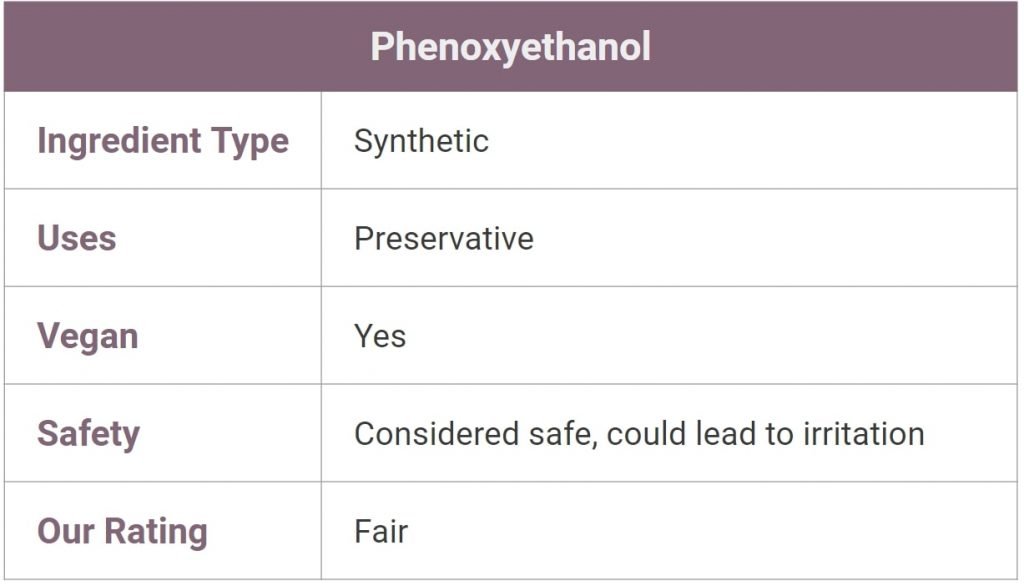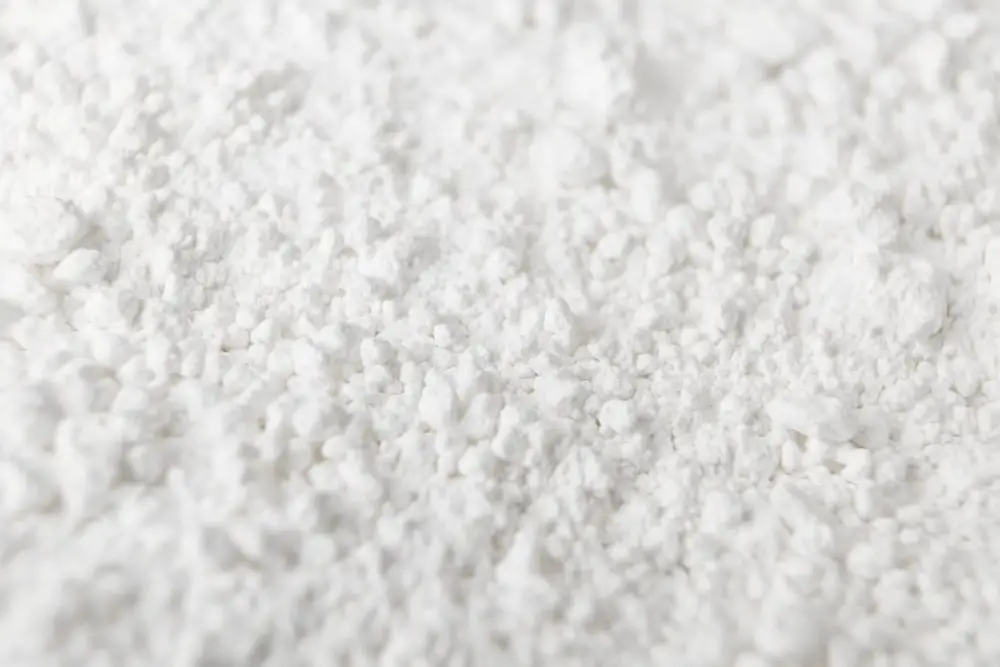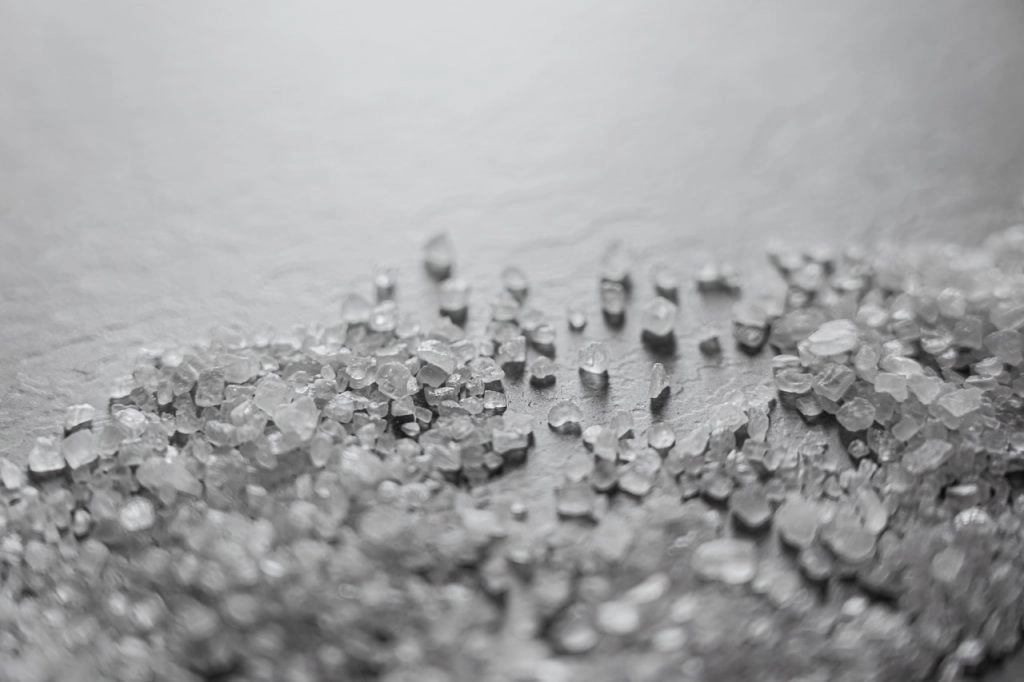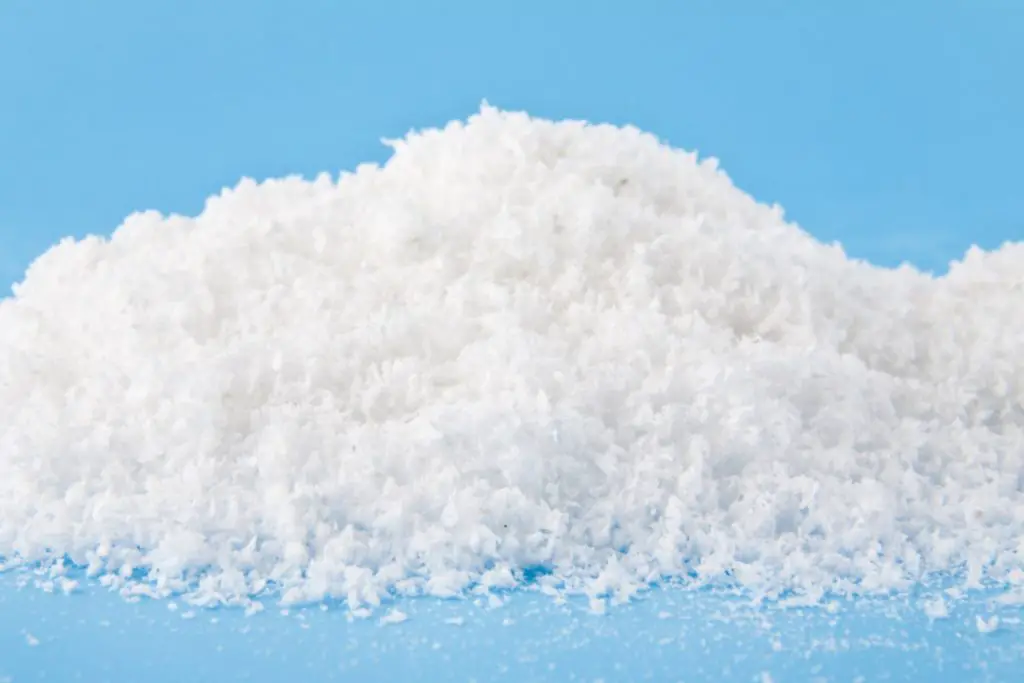Let’s confront the elephant in the room. Phenoxyethanol is a preservative. Now that we got that out of the way, we can discuss what that means and if you should be concerned about this ingredient in your skincare products. In a perfect world, we wouldn’t need to use preservatives in any of our products or consume any preservatives in the food we eat.
This post may contain affiliate links. Read the full disclosure here
The reality is that, as consumers, we wouldn’t have access to some of the most effective and most popular skincare products on the market without preservatives such as phenoxyethanol. Preservatives can help keep skincare products safe (free of bacteria and microorganisms) and more effective as they age. The important consideration is to find preservatives that aren’t harmful or unsafe.

What Is Phenoxyethanol?
Phenoxyethanol occurs naturally in green tea, but in very small amounts, so it’s impractical to synthesize it from the plant directly. The ingredient used in skin care products is a synthetic preservative that is derived from several lab chemicals that are mixed through complex chemical reactions and processes. The ingredient is produced by treating phenol with ethylene oxide in an alkaline medium. It may also be referred to as glycol ether.
Phenoxyethanol has a variety of different uses. It’s used in perfumes as a fixative, and also has insect repellent and antiseptic properties. Phenoxyethanol is also sometimes used as a solvent for dyes, inks, cellulose acetate, and resins.
In skincare, this ingredient is mostly used as a preservative. It has a variety of unique properties that help inhibit the growth of undesirable microorganisms in skincare, hair care, and beauty products.
Phenoxyethanol is not a paraben. Parabens are derived from a chemical known as para-hydroxybenzoic acid (PHBA). Even though phenoxyethanol is a preservative, it is not classified as a paraben.
Phenoxyethanol Uses & Benefits In Skincare
It’s not an active ingredient, so the phenoxyethanol skin benefits are not direct. Mostly, this ingredient helps preserve other ingredients and keeps products from spoiling or becoming contaminated by yeast, bacteria, and other microorganisms. It helps products last longer.
- Kills bacteria and microorganisms – Even in low concentrations, this ingredient kills harmful microorganisms that may otherwise feed on the ingredients in cosmetic and skincare products. This includes common bacteria, yeast, mold, fungi, and much more.
- Prolongs shelf life – Because it kills and inhibits the growth of microorganisms, phenoxyethanol helps protect skincare products and extend their shelf life. It’s often used as an alternative ingredient to parabens, which have developed a bad reputation among skincare enthusiasts.
- Stable in cosmetic formulations – Phenoxyethanol helps stabilize other ingredients in cosmetic products. As a solvent, it can help dissolve other substances and keep them in a consistent, smooth formulation.
Is Phenoxyethanol Vegan?
Yes. Because it’s derived synthetically from laboratory chemicals, this ingredient is not animal-derived and is completely cruelty-free. Many vegan and cruelty-free skincare companies use phenoxyethanol in their products. As always, you should always look for brand information and read the labels of skincare products to check for non-vegan ingredients.
Is Phenoxyethanol Safe In Skincare?
Phenoxyethanol has been deemed safe to use in skincare and cosmetics when used in low concentrations (below 1%). Both the FDA and the Cosmetic Ingredient Review consider this preservative safe to use in low concentrations. Even the European Commission of Health and Food Safety gave phenoxyethanol a safe rating.
Even though it is considered safe and has a valid reason to be included in skincare products, you’ll want to keep an eye on products using this ingredient.
Phenoxyethanol can cause skin irritation and allergic reactions in some people who are genetically predisposed to these issues due to sensitive skin or eczema. It’s recommended that if you have sensitive skin, you test products containing phenoxyethanol on a small patch of skin on your body for several days to check for any potential reactions.
Concerns
You may have heard about some alarming studies about phenoxyethanol, such as studies in mice that show it causes reproductive and developmental toxicity. However, these studies were performed with a 100% concentration of phenoxyethanol, and it was being ingested by the mice, rather than being applied on the skin. Typically, phenoxyethanol consists of less than 1% of the volume of a product. When used in the recommended concentrations, it is considered safe to use in skincare products and cosmetics.
Also Known As
There are a wide variety of different names for phenoxyethanol in skincare, including ethylene glycol monophenyl ether, 2-Phenoxyethanol, PhE, arosol, dowanol, rose ether, phenoxetol, beta-hydroxyethyl phenyl ether, or phenoxyethyl alcohol.
Bottom Line
If you don’t have sensitive skin or irritation problems phenoxyethanol likely won’t give you any trouble. But if you are more prone to irritation or allergic reactions, then this is a good ingredient to test eliminating. Phenoxyethanol is one of the better preservative options out there. If you are having trouble with this ingredient, consider looking into products that use alternatives such as potassium sorbate, sodium chloride, or sorbic acid.
Sources:
- Cosmetic Ingredient Review Expert Panel – International Journal of Toxicology 30(Supplement 2) 73S-127S




